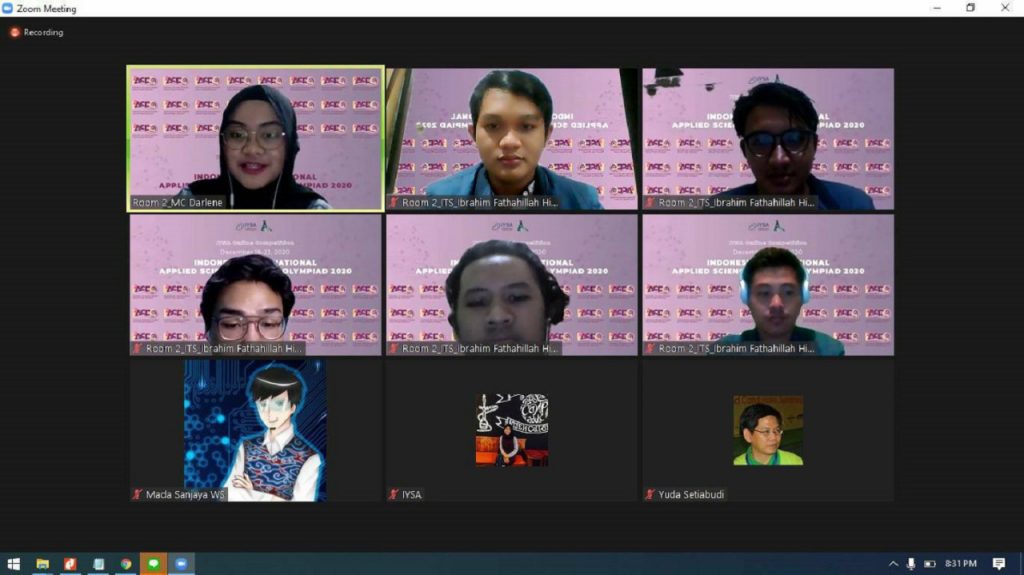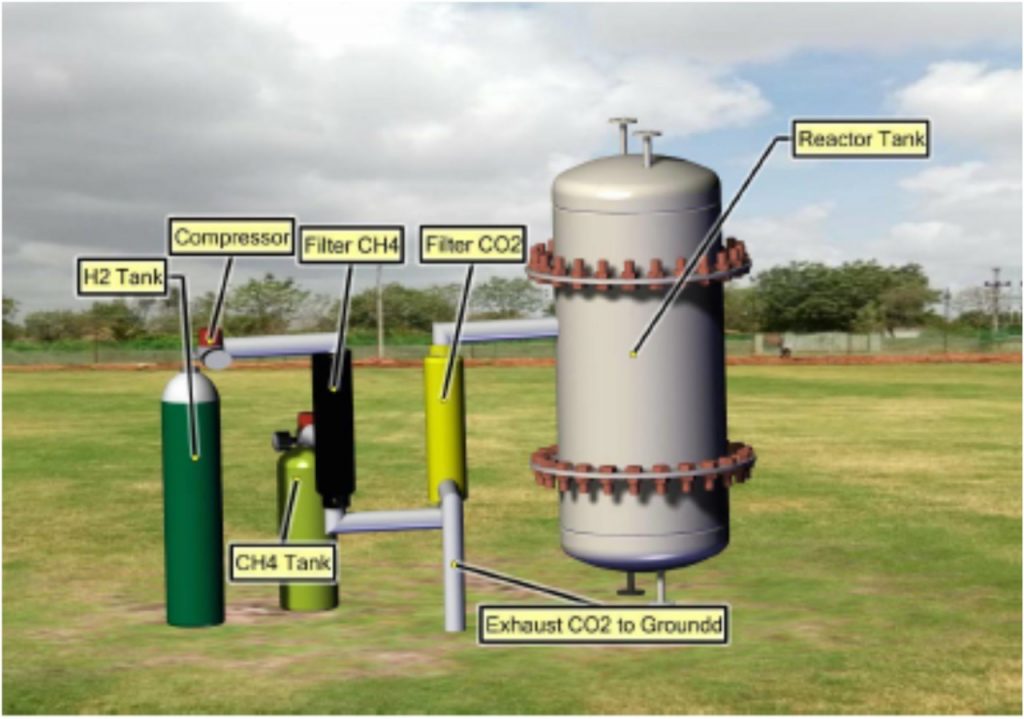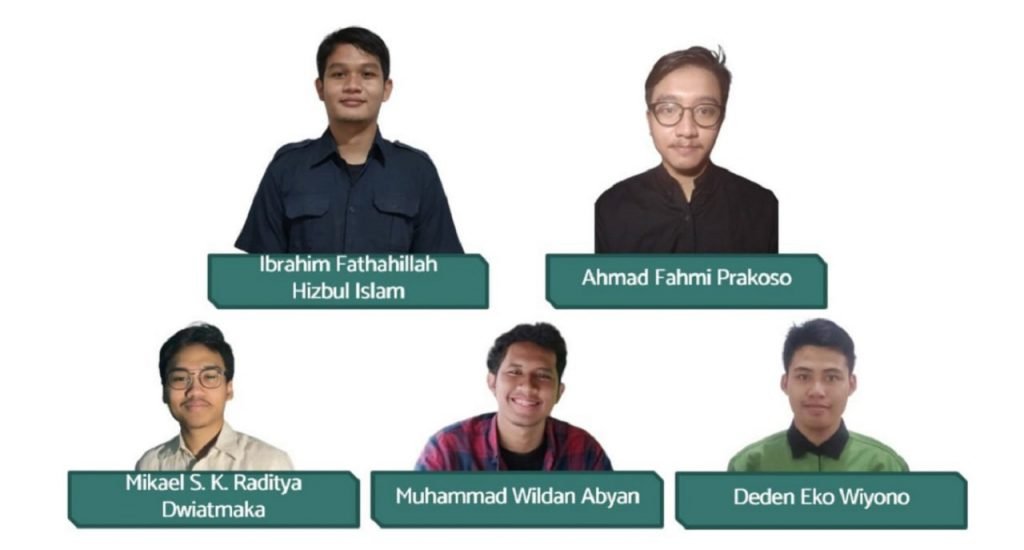Utilizes Rice Husks, ITS Students Create Electric Generator

Antasena Team of ITS presents their innovation at Indonesia International Applied Science Project Olympiad (I2ASPO)
ITS Campus, ITS News – The demand for energy in Indonesia keeps increasing each year. However, most energy sources in Indonesia still use non-renewable fossil energy. Therefore, the Antasena Team from Institut Teknologi Sepuluh Nopember (ITS) concepts renewable energy from rice husks to meet the demand for the needs of energy in Indonesia, especially electrical energy.
The student team consists of Ibrahim Fatahillah Hizbul Islam (Material and Metallurgical Engineering 2018), Ahmad Fahmi Prakoso (Materials and Metallurgical Engineering 2018), Mikael S K Raditya Dwiatmaka (Chemical Engineering 2019), Muhammad Wildan Abyan (Materials and Metallurgical Engineering 2019), and Deden Eko Wiyono (Industrial Chemical Engineering 2019). The five of them have managed to create Antasena Biohidrogen Electric Generator. This generator was created to produce hydrogen gas from the fermentation of biomass.
Ibrahim Fatahillah Hizbul Islam, as the team leader said, the used biomass was produced from rice husks. Rice husks were chosen since Indonesia is practically considered an agricultural country with a plethora of rice production. “Therefore we utilize that opportunity to create renewable energy,” he said.
Fatah, as he usually called, explained, first, the rice husks are processed with NaOH to degrade lignin. Next, the rice husks are ground with a grinding machine to expand their contact area. Finally, the processed rice husks are hydrolyzed with two micro-fungus, Trichoderma reesei dan Aspergillus niger. Thus, the cellulose in rice husks will be converted into glucose.
Fatah continued, the rice husks from the first process explained in the previous paragraph then is fermented with anaerobic bacteria, Clostridium butyricum. This bacteria is chosen because it has the ability to produce hydrogen. “This hydrogen gas is then converted into electrical energy using a fuel cell,” he explained.

The prototype of the device that produces electrical energy from rice husks made by the ITS Antasena Team which won the Gold Medal at I2ASPO
This alumnus of SMA Negeri 12 Surabaya explained that the tool was made to answer the high demand for energy in Indonesia which will skyrocket in the next few years. They predict that around 29 percent of the use of New and Renewable Energy (EBT) will occur in 2050. “Based on this figure, Indonesia should have started to utilize renewable energy sources,” he warned.
Fatah continued that this Antasena Biohydrogen Electric Generator could also be an investment that would be profitable from an economic perspective. Based on their analysis, this tool has an income value equal to the capital they spend. “This makes no loss or gain for two years, nine months, 20 days in its use,” he said.
This class of 2018 student said that the hydrogen gas that could be produced by the Antasena Biohidrogen Electric Generator reached 5.72 liters every hour. The hydrogen gas can be converted to electrical energy with a fuel cell. Based on this, this tool is assumed to be able to meet the electricity needs of 16 houses with an electricity capacity of 500 Watt each. “The community can benefit by 87 percent than using ordinary electricity,” he said.

Five members of the ITS Antasena Team succeeded to create the innovation that aims to produce electrical energy from rice husks
Through their brilliant work, the ITS Antasena Team has also won a Gold Medal at the Indonesia International Applied Science Project Olympiad (I2ASPO) last December. The benefits presented in answering energy problems in Indonesia in the future, thus makes this team considered worthy of this award.
Fatah hopes that the ITS Antasena Team can continue to make innovations to help problems in the community. Then, he also hopes that the generator made by his team can be produced in the future, therefore, it can be implemented in the community. “That way, we can help people save the use of electrical energy,” he concluded hopefully. (dil/nadh/ITS Public Relations)
Related News
-
ITS Collaboration with BPBD East Java, Launching VR Disaster Simulation
ITS Campus, ITS News — Supporting anticipation of disasters and continuing to educate the public, Institut Teknologi Sepuluh Nopember
February 05, 2021 16:02 -
Supporting the Implementation of Innovative Ideas, ITS and IYSA Hold International Competition
ITS Campus, ITS News — Institut Teknologi Sepuluh Nopember (ITS) has once again proven its commitment to supporting the
February 05, 2021 16:02 -
ITS Maintains Informative Qualification for Five Consecutive Years at KIP Awards
ITS Campus, ITS News — Institut Teknologi Sepuluh Nopember (ITS) has once again successfully maintained its Informative Qualification predicate
February 05, 2021 16:02 -
ITS Strengthens Smart Eco-Campus through UI GreenMetric 2024
ITS Campus, ITS News — Institut Teknologi Sepuluh Nopember (ITS) has once again demonstrated its commitment to environmental concern
February 05, 2021 16:02
